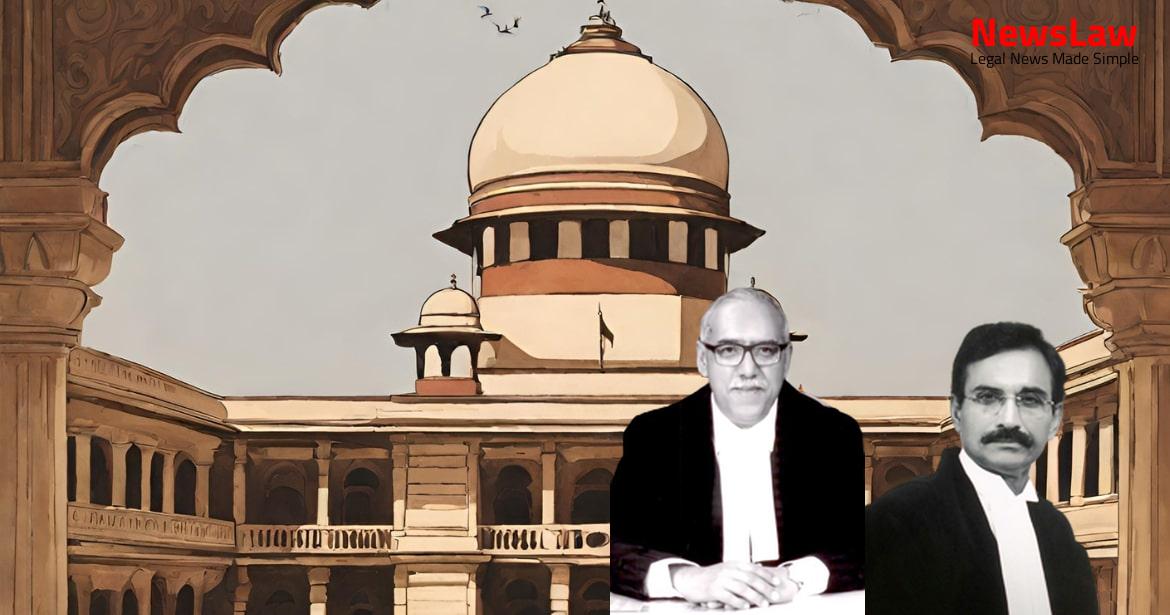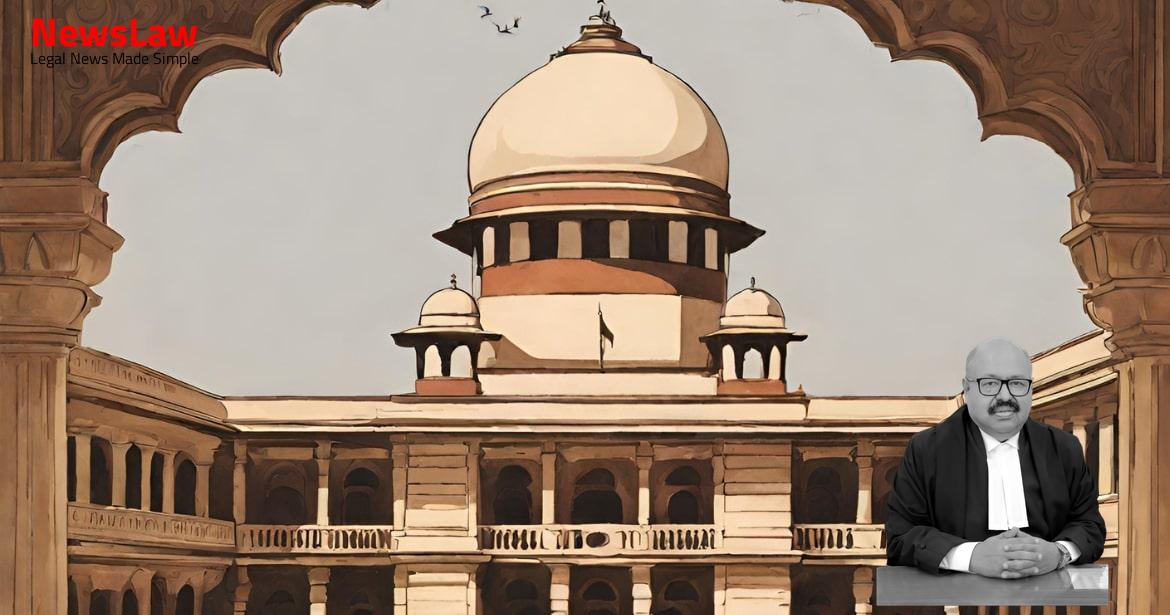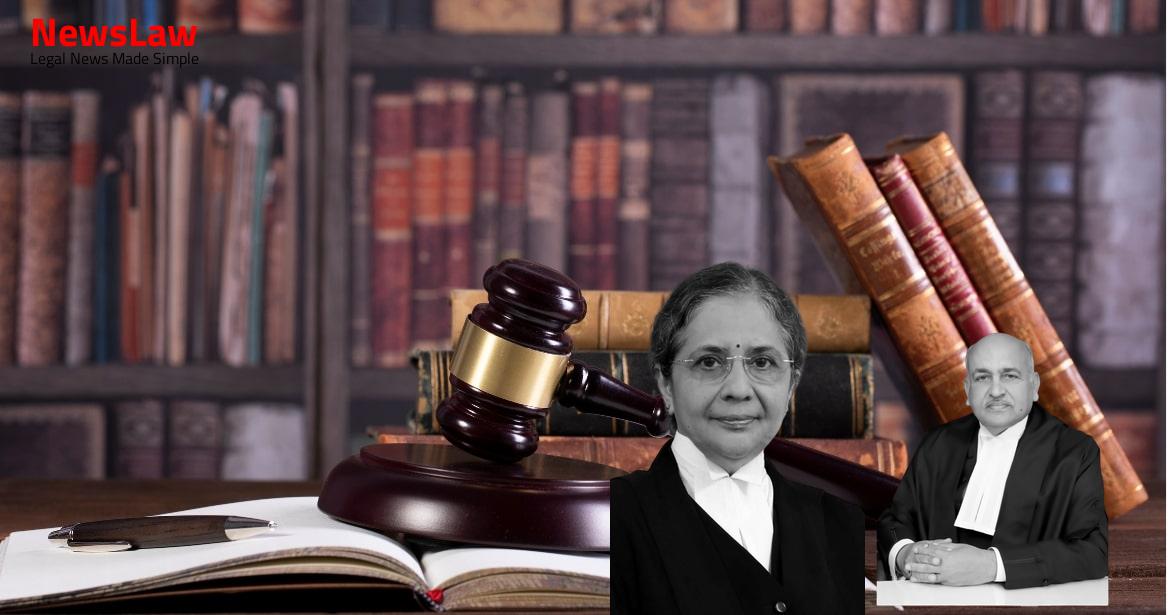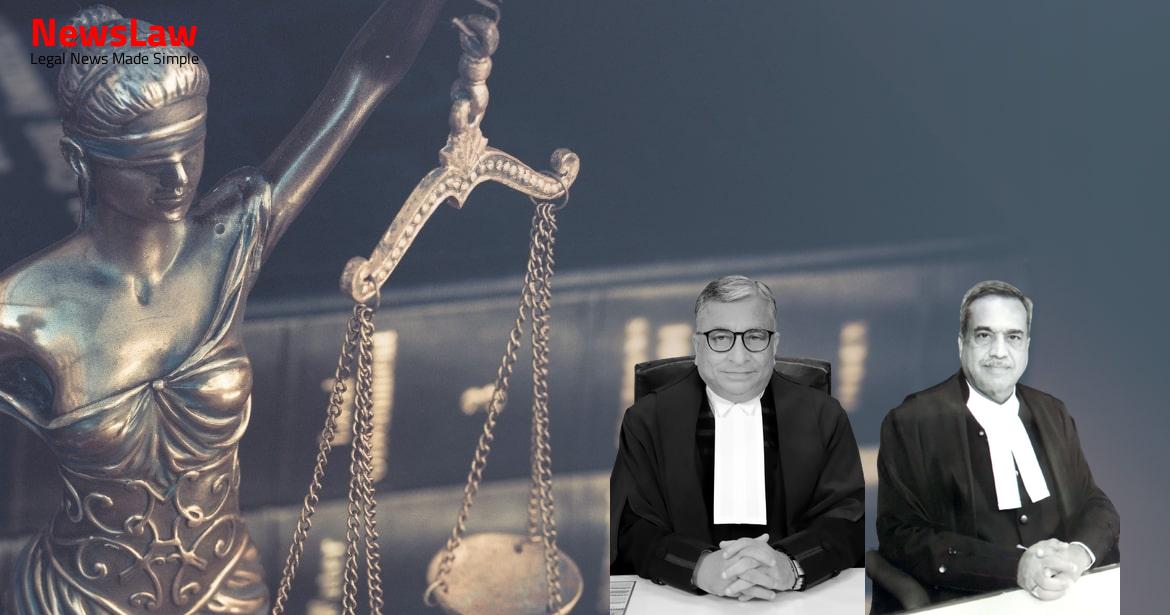Explore the intricate legal analysis carried out by the court in a recent case concerning the assessment of undisclosed income. The court scrutinized the disclosure of material facts by the assessee during the original assessment and delved into the validity of reasons to believe that income had escaped assessment. The court’s thorough examination of the case provides valuable insights into the complexities of income tax assessments and the legal obligations of the parties involved.
Facts
- The assessing officer held that NNPLC had virtually no financial worth and no business, making it questionable how it could issue convertible bonds of US$100 million without proper security.
- The case was selected for scrutiny, and notices under Sections 143(2) and 142(1) of the Income Tax Act were issued to the assessee.
- The revenue sent a notice stating that income chargeable to tax for the assessment year 2008-09 had escaped assessment under Section 148 of the Act.
- The assessing officer imposed a guarantee fee of 4.68% on the transaction between the assessee and its subsidiary in the United Kingdom, adding Rs. 72 crores to the assessee’s income.
- NNPLC was placed under liquidation on March 28, 2011, despite having issued step-up coupon bonds of US$100 million, received through Jeffries International and Bank of New York, which were redeemed prematurely at a discounted price in November 2009.
- The assessing officer rejected objections stating the inference that NDTV’s funds were introduced in NNPLC through the impugned bonds.
- Assessee argued no withholding of material facts, thus 6-year limitation of Section 147 proviso would not apply.
- AO had reasons to believe funds received by NNPLC were assessee’s under a sham transaction involving step-up coupon convertible bonds.
- Assessee’s claim was disposed of with finding of non-disclosure of material facts by AO within limitation due to NNPLC being a foreign subsidiary deriving income.
- AO did not accept objections, placing the case within the 2nd proviso of Section 147, applying extended 16-year period.
- Assessee claimed AO accepted transaction’s genuineness as NNPLC issued bonds subscribed by multiple entities, treated as genuine by levying guarantee fees.
- Alternatively, it was argued that the notice was issued beyond the 4-year limitation period.
Also Read: Judicial Review of Answer Key in Teacher Selection Process
Arguments
- The issues arising for consideration in this case are identified:
- Validity of reason to believe undisclosed income escaped assessment
- Assessee’s disclosure of material facts during original assessment
- Identification of notice invoking second proviso to Section 147 of the Act
- Strenuous assertion by assessee of detailed scrutiny in original assessment
- Original assessment detail does not bar assessing officer from issuing Section 147 notice
Also Read: Jurisdiction and Substantial Questions of Law in Land Dispute Case
Analysis
- The assessing officer had knowledge of addresses and consideration paid by bondholders from other convertible bond cases.
- The disclosure of step-up coupon bonds issuance, entities subscribing, and discounted rate was made before final assessment.
- The assessee was found to have full and true disclosure of all necessary material facts for assessment.
- The revenue’s claim of non-disclosure regarding subsidiaries’ details was refuted as the assessing officer accepted the transaction without doubt.
- The revenue’s attempt to show non-disclosure was rejected based on the facts disclosed earlier to them.
- The High Court’s ruling on non-disclosure was challenged based on the full disclosure given to the assessing officer.
- The revenue was found inconsistent in its stance regarding the assessee’s disclosure of material facts before different courts.
- The assessing officer had access to all material regarding the transaction and entities involved, negating the claim of non-disclosure.
- The argument of non-disclosure concerning foreign entities was countered by the fact that all relevant information was provided to the assessing officer.
- The revenue’s reliance on substantial income and loss figures from foreign entities was not deemed as non-disclosure of material facts by the assessee.
- The High Court in this case held that there was no ‘true and fair disclosure’ based on the law set out in Phool Chand’s case and the judgment of the Delhi High Court in Honda Siel Power Products Limited vs Deputy Commissioner Income-Tax.
- The judgment in Phool Chand’s case stated that if a transaction in a particular assessment year is found to be bogus, the disclosures made cannot be considered as ‘true’ and ‘full’.
- The High Court’s conclusion that mere disclosure of the convertible bonds transaction during the original assessment does not amount to true and full disclosure was not agreed upon.
- The Court referred to Claggett Brachi Co. Ltd., London vs Commissioner of Income Tax, Andhra Pradesh, Phool Chand Bajrang Lal, and Another vs Income Tax Officer and Another, as well as Ess Kay Engineering Co.(P) Ltd. vs Commissioner of Income Tax, Amritsar to support their disagreement with the High Court’s reasoning.
- The Constitution Bench in Calcutta Discount Co. Ltd. vs Income-tax Officer, Companies District I, Calcutta, established that the assessee must disclose all material facts referred to as primary facts.
- The High Court’s reliance on Mohinder Singh Gill & Anr. vs. The Chief Election Commissioner, New Delhi & Ors. to conclude that the revenue cannot rely on the second proviso due to the silence in the notice was discussed.
- The notice issued to the assessee had sufficient reasons to believe for reopening the assessment.
- The revenue failed to demonstrate non-disclosure of facts, leading to the requirement of quashing the notice issued after a period of 4 years.
- No opinion was expressed on whether the revenue could take advantage of the second proviso.
- The revenue is allowed to issue a fresh notice, potentially utilizing the second proviso if legally permissible.
- Both parties have the freedom to raise all contentions regarding the validity of such notice.
- All pending applications are considered disposed of.
Also Read: Challenge of Secured Creditor’s Procedure
Case Title: NEW DELHI TELEVISION LTD Vs. DEPUTY COMMISSIONER OF INCOME TAX (2020 INSC 330)
Case Number: C.A. No.-001008-001008 / 2020



